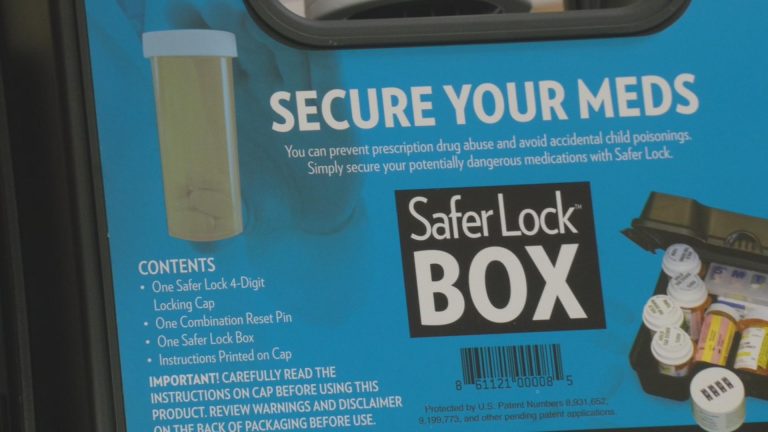
AI Can Hear Alzheimer's Before It Strikes | Image Source: www.sciencealert.com
BOSTON, Massachusetts, 21 March 2025 – Alzheimer’s disease has long disapproved scientists and doctors. Despite decades of research, we still do not fully understand what is responsible for it. But we know what he’s doing to the brain, and more and more, how to detect it before it becomes debilitating. In innovative development, researchers from the University of Boston and the University of Toronto are discovering subtle yet revealing models in human discourse that could provide a new early warning system for Alzheimer’s disease and related cognitive deterioration. Its results could completely change the way we monitor brain health, without costly images or invasive procedures.
As peer-reviewed journals, including Alzheimer’s disease and dementia and aging, neuropsychology and cognition, indicate, researchers are at zero in two unknown but incredibly revealing factors: the speed with which we speak and how our sentence structure changes over time. Using artificial intelligence (AI), the Boston team has created an algorithm that can predict with 78.5% accuracy if someone with mild cognitive impairment (MCI) will develop Alzheimer’s disease within six years. Meanwhile, an independent study by Dr. Jed Meltzer of the University of Toronto revealed that the speed of speech, not oblivion, is a more reliable marker of early cognitive decline. These perceptions not only open doors, but open them.
Can speech patterns really predict Alzheimer’s?
In short: yes, more and more. According to the computer scientist at the University of Boston Ioannis Paschalidis, the new AI algorithm was trained in transcribed audio recordings of 166 people aged 63-97, all previously diagnosed with ICD. As the research team already knew which of these people was going to develop Alzheimer’s disease, AI was able to learn the models associated with cognitive deterioration. Once formed, the model could reverse its knowledge, apply it to new speech samples and calculate the probability of progression to Alzheimer’s disease.
“We wanted to predict what would happen over the next six years – and we found that we can reasonably make this prediction with relatively good confidence and precision. Show the power of AI”
said Paschalidis when the findings were published in 2024.
What makes this method particularly convincing is its practical nature. Unlike blood tests or brain images, which can be costly and require specialized adjustments, this approach requires only a brief recording of speech. In the future, a person could record his/her voice on a smartphone, download it into a secure application and get a risk assessment without entering a clinic. It is not just practical, it is revolutionary in terms of accessibility and scalability, especially in rural or disadvantaged areas.
Forgetting words is a sign of Alzheimer’s?
That’s where things get a little counter-intuitive. Many people fear these frustrating moments of “type-de@-@ la@-@ langue” as signs of invasive dementia. But according to the University of Toronto study, these moments, technically known as lethology, are frequent and are not particularly useful in diagnosing Alzheimer’s disease. Dr. Meltzer’s investigation revealed that breaks in the determination of the word, surprisingly, are not correlated with cognitive decline. Instead, voice speed – specifically, the time it takes to name or describe things – is much more metrical.
Using a two-phase smart experiment, researchers studied 125 adults aged 18 to 90 years. Participants engaged in a “gamified” task of identifying images by being distracted by related or similar words. Later, they describe two complex images for 60 seconds each. Then AI analyzed his speech for his rhythm, the variety of words and breaks. The key? As age increased, cognitive problems too, but only the speed of speech – not hesitation or vocabulary – were related to mental decline.
“Our results indicate that changes in general conversation speed may reflect changes in the brain”
Dr. Meltzer noted. “This suggests that talking speed should be tested as part of standard cognitive assessments.”
Why does early detection matter if there is no cure?
It’s about millions of dollars. And the answer lies in both treatment opportunities and research progress. Although we can’t cure Alzheimer, yes, we can handle this. According to Alzheimer experts, early intervention with drugs and lifestyle changes can slow the progression of the disease, helping to maintain quality of life. In fact, the sooner these interventions begin, the more effective they will be. According to the Alzheimer Association, even modest initial delays could reduce the number of Alzheimer’s cases by millions in the coming decades.
In addition, early identification allows individuals to enrol in clinical trials at the most critical stages of disease development. This is essential to better understand how and why Alzheimer’s disease is developing. More quality and initial data researchers can better collect their chances of finding a real cure, or at least a very effective treatment.
What makes the analysis of AI so promising?
In addition to its ease of use, AI-based speech analysis offers unique opportunities for ongoing monitoring. Unlike memory tests administered every six or 12 months, speech-based evaluations can be performed frequently and in real time. Over time, the algorithm could create a rich basic profile for each individual, allowing to detect even the smallest changes in cognitive patterns, long before external symptoms appear.
In addition, these systems are improving rapidly. The Boston algorithm was formed in relatively low quality recordings. Imagine what could happen with a sound of its own and high fidelity. As Paschalidis pointed out, the refinement of data entries will probably make the model even more precise, opening the door to integration into voice assistants, smartphones or telehealth platforms. With the large technology companies already investing in IV and health, the road to real world implementation may not be as long as we think.
How could this clinical practice change?
Currently, cognitive tests are often reserved for those who already show signs of memory loss. What if doctors can identify risks long before symptoms arise? This is the paradigm shift that researchers are looking for. Using tools such as speech analysis by AI, clinicians could conduct annual or even biannual audits using voice assessments, similar to how we monitor blood pressure or cholesterol. This would really prevent brain care.
Furthermore, as this method does not require specialized training to administer, general professionals, nurses or even caregivers could begin the process. Over time, voice analysis could become a standard feature of electronic health records, automatically updated when patients interact with health systems.
What are the ethical and technical challenges?
Like any powerful tool, this technology raises valid concerns. First, there’s privacy. Voice data is deeply personal and abuse can lead to serious ethical violations. It will be essential to ensure encrypted storage, anonymity and strict data governance. Secondly, there is the question of accuracy and bias. AI models are as good as the data in which they are formed. A lack of diversity of data sets could mean that the model works better for some demographic groups than for others. It will be essential to address these disparities for broad adoption.
Another challenge is psychological. How can you tell someone, depending on their voice, that they could develop Alzheimer’s disease? What guarantees should exist to prevent panic, stigma or misinterpretation? Researchers and clinicians must be cautious in balancing the potential benefits of early warning with the emotional impact of such news.
But in general, the promise is huge. We are about to turn passive symptoms into actionable signals. It’s not just innovative, it’s human.
According to the findings of Science Alert and Parade Health, it becomes clear that the power of AI lies not in the replacement of human doctors but in their equipment with sharper and older tools. And in Alzheimer’s care, time is the most valuable asset of all.
As Paschalidis said, “if you can predict what will happen, you have more than one chance and opportunity to intervene with the drugs, and at least try to maintain the stability of the condition.”
In a world where about one in nine people over 65 years of age will develop Alzheimer’s disease, even a small leap in detection can echo millions of lives. Whether you speed up speech analysis tools or integrate them into usable technology, the next decade could redefine how we protect the brain, one word at a time.




